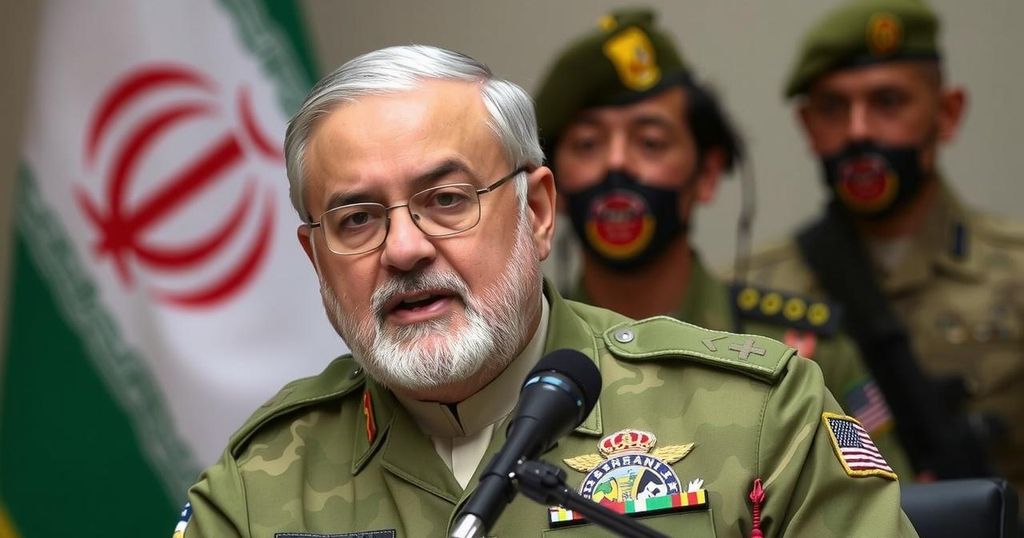Brigadier General Behrouz Esbati has publicly acknowledged Iran’s severe defeats in Syria, criticizing both Russian actions and Assad’s rejection of Iranian military proposals. He described the collapse of Syria’s capital as a strategic loss and expressed frustration over Russia’s misleading military operations, which hampered Iranian efforts. Esbati confirmed intentions to strengthen resistance networks while recognizing significant existing challenges and the complicated geopolitical landscape.
A senior Iranian military official has publicly acknowledged that Iran has suffered serious defeats in Syria, significantly challenging previous assertions of strategic resilience. Brigadier General Behrouz Esbati stated, “I don’t consider losing Syria something to be proud of. We were defeated, and defeated very badly; we took a very big blow and it’s been very difficult.” Esbati, who oversaw Iranian military operations, criticized both Syrian President Bashar Assad for rejecting Iranian proposals and Russian forces for undermining Iranian efforts by bombing the wrong targets. He asserted that the collapse of Damascus was a severe strategic setback for Iran, exacerbated by Assad’s refusal to allow Iranian-backed militias to strike Israel from Syrian soil.
In his remarks, Esbati highlighted the strategic fallout caused by the Assad regime’s corruption and repression, which he argued had weakened Iran’s position in the region. He expressed frustration over Russia’s actions, claiming they misled Iranian leaders about military capabilities and hindered their operations against rebel forces who were challenging Assad’s authority. Despite these setbacks, Esbati insisted that Iran and its allies still maintain significant influence in Syria, hinting at the potential for future retaliatory actions against any perceived threats, particularly from Israel.
Moreover, he spoke of mobilizing local resistance networks to confront the new Syrian leadership under Ahmad al-Sharaa, indicating that Iran intends to persist in consolidating its presence in the region. Esbati also touched on the limitations faced by Iran, citing the risks associated with escalating tensions with the United States and its allies due to advanced missile defense systems.
The acknowledgment of setbacks in Syria by Brigadier General Behrouz Esbati is significant as it indicates a shift in Iran’s public narrative regarding its military involvement in the region. The Iranian military has traditionally painted a picture of resilience and strategic success, but Esbati’s candid admission suggests a reevaluation of their influence and the effectiveness of their strategies. The dynamics among Iran, Syria, and Russia have been complex, with accusations of miscommunication and misaligned objectives. Esbati’s comments shed light on the broader geopolitical environment in the Middle East, particularly regarding Iranian interests in countering Israeli actions and the fragility of Assad’s regime amidst ongoing conflict.
Brigadier General Behrouz Esbati’s candid admission of Iran’s defeats in Syria marks a notable departure from the previous narrative of military success. His critique of Russian operations and the Assad regime highlights the complexities and challenges Iran faces in maintaining influence in Syria. While he signaled intentions to reorganize and mobilize resistance against new leadership, the realities of their situation suggest significant limitations. Ultimately, Esbati’s statements underline the precariousness of Iranian ambitions in the region amidst ongoing conflict and geopolitical rivalries.
Original Source: www.ynetnews.com






